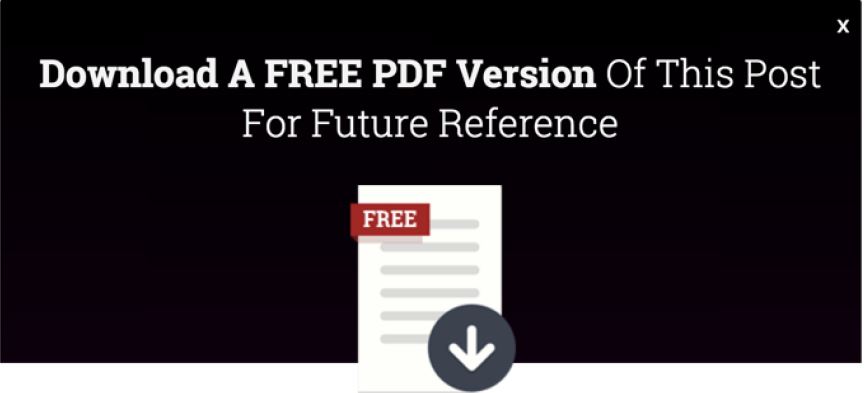What Business Are You REALLY In?
While appearing on the Late Late Show with Craig Ferguson, superstar country singer Trace Atkins tells about the time in his life before he becomes famous.
Trace played in clubs throughout the Southwest for 5 years, moved to Nashville, and played in bars for another 3 years before getting his first recording contract.
Trace says, “I always had very happy club owners because I would challenge people to drink as much as I did from the stage. So I sold a lot of liquor, which is really the business that you’re in when you’re playing beer joints. You’re not in the music business, you’re in the liquor business.”
Craig Ferguson jumped in with his own analogy, explaining that his late-night tv show wasn’t about television; it was about selling erectile dysfunction pills to lonely people.
Okay, maybe Craig was joking (and maybe he wasn’t) but the point is this: You’re not always in the business you think you’re in.
Trace knew that if he wanted to stay booked in the local pubs, he needed to make the bar owners happy. And what did the bar owners really want? It wasn’t to pack their venues with people who liked to listen to country music – it was to sell drinks. It wouldn’t matter how many people showed up for the music if no one was drinking and Trace knew that. That’s why he made it his business to sell alcohol, making the bar owners happy and ensuring he continued to work.
Trace’s number one customers weren’t the fans, they were the bar owners. And later, his number one customer would be the record label.
Whatever you sell, it might not be what you think it is and your customer might not be who you think it is, either.
If you’re in the business of helping small businesses with their marketing, who is your customer? The business owner, of course. And yet there is often someone who it is even MORE important to impress than the business owner, and that’s the gatekeeper. It might be an assistant, a secretary, a spouse, or a manager. This is the person who is the KEY to getting to the guy or gal who makes the money decisions. If you don’t make it a priority to sell the gatekeeper first, they are going to sabotage you and you’ll never get the client.
Let’s say you’re in the weight loss industry. Are you really selling yet another method to lose weight? Or are you selling people in the hope they can feel sexy again, fit into their clothes again, live longer, overcome their crippling health challenges, and so forth?
If you’re a minister or a teacher, your clients aren’t your congregation or students – it’s the board that determines if you get to stay or go.
Let’s face it: If it weren’t for all the issues that being overweight brings with it – if people were just as healthy and sexy and confident with that extra weight – then you would be out of a job.
You’re not selling a skinnier body, you’re selling a better quality of life, and that’s a huge distinction.
The romance niche isn’t about finding someone to move in, pay half the mortgage and make you less lonely – any decent roommate can do that. It’s about sharing life experiences with the one person who truly knows you, being yourself in front of this person, and being able to completely open up and let someone else know the real you, expanding your world to encompass another, and so forth.
You might think you’re a musician, a marketer, a product creator, and so forth, and maybe you are. But you’re also a version of Trace’s alcohol salesperson, or whatever it takes to connect with your customer and make the sales.
Promise and Hold Back to Get Prospects on the Phone

I couldn’t find the download anywhere.
I checked my email, I clicked all the links and went to all the pages, I set up my new, free ‘membership’ and still, the download wasn’t there.
But they kept telling me to be sure to download it as soon as I watched the video.
So I watched the video, but the download still did not appear.
Do you know what DID appear?
An email.
“We noticed you still have not downloaded the XYZ Document. If you need help, just click this button and someone will call you to assist.”
Ah-Ha!
Sneaky clever, don’t you think?
Here’s what they’re doing:
They’ve created an outstanding video that teaches a marketing technique.
To get you to watch the video, they promise you a free download of one of the internal documents that have made them millions.
But you can’t get to the document until you watch the video (it’s a long one) all the way to the end.
You watch the video and… WHOOPSIE! Haha!
No download.
Next comes the super nice, super helpful sounding email. This is where they get you on the PHONE and sell you on their expensive program.
It’s a bit diabolical, but still, I have to admire their creativity.
Count to 3 and Pick 1

Are you a fast or slow decision maker?
I ask because successful people generally make fast decisions.
Unsuccessful people? They pore over the stats, read the reviews, ask their friends, do some more research, sleep on it, sleep on it a few more times, forget they were supposed to make a decision, remember they need to decide but have to start over because they don’t remember the results of their research… you get the idea.
And the longer it takes you to make a decision, the more stressed out you become, too.
Successful people look at the options and choose.
Do they sometimes make poor decisions because of this?
Maybe.
But the odds of making a poor decision are statistically the same regardless of whether you spend an hour deciding or a year.
And the person who decides in an hour now has the rest of the year to accomplish other stuff.
Figure out what your options are.
Count to three and choose one.
And then move on.
Product Not Selling? Try This

Boys and girls, there was a time when calculators weren’t apps on smartphones – they were actually stand-alone hand-held electronic gizmos that did nothing but calculate numbers. (Gosh I’m dating myself here.)
Some of these calculators were even what you might call “desk-sized” because they were so big you had to set them on something to use them.
One day a salesman found himself stuck with a gross of these large desk calculators. Nobody wanted to buy them, so here’s what he did… he told his customers they were giant “ice scrapers” they could use to scrape ice off of windshields. The customers would object and say, “No, they’re calculators,” and he would reply, “Oh ya, I suppose you could use these as calculators, too, but they’re really great at removing ice!”
People would laugh and then buy one, and within days the calculators sold out.
Do you have a product that’s not selling?
Maybe you can find new positioning for your product or a new and imaginative way to describe it.
Do you have a course on how to drive traffic via social media? Reposition it for one particular niche – dating, health, MMO, chiropractors – you get the idea.
Do you sell a course on how to make art? Reposition it as art therapy so that it’s now about the process and not the outcome.
Almost any product can be targeted to a new audience or even repositioned as something entirely different.
What a great way to give new life to old products.
The Gong Show Secrets to Success

In the 1970s there was a ridiculous and somewhat controversial show where performers of questionable talent did strange and bizarre things in the name of entertainment. When their acts became too much to bear, celebrity judges hit a giant gong, sending the performer packing.
This was a precursor to the competitive reality shows of today and at the time many people thought it was in terrible taste. That didn’t stop them from tuning in, though, and if you happened to be stoned when you were watching, well then I hear it was a laugh riot.
The perpetrator and host of this show was a guy named Chuck Barris. To give you a bit of history, Chuck created two smash-hit TV shows in the 60’s; The Dating Game and The Newlywed Game.
But when Chuck debuted The Gong Show, critics called him, “The Baron of Bad Taste” and “The King of Schlock.”
In response, Barris wrote a book that attempted to set the record straight with some bald-faced lies.
Barris claimed he was – now get this – a CIA assassin.
In his book, “Confessions of a Dangerous Mind,” Barris asserts he worked for the CIA as a hired assassin throughout the 1960s and 70s. The CIA emphatically said this was not true, but what else would the CIA say?
The public always wondered…
Was Barris – the guy who acted like a silly clown on television – really a CIA assassin?
Maybe.
Nah… probably not.
But still… maybe…
Barris was quoted as saying, “Here I was, getting crucified by critics for entertaining people (The Gong Show) and getting medals for killing them. That just didn’t seem logical.”
In 2002 George Clooney created a feature film loosely based on and totally spoofing the book, in which Chuck Barris kills 33 people as a CIA operative. I haven’t seen the movie but the trailer is hilarious.
Back to the two hit shows Barris created in the ’60s:
The Dating Game was simply 3 people competing to get a date with a 4th person by answering his or her questions That was the entire premise and the show lasted for 15 years.
Then there was the Newlywed Game which was, as Barris described it, “4 couples, 8 questions, and a washer-dryer.”
How long did it take Barris to come up with these ‘products’? I suspect the ideas came spontaneously in the shower or while he was falling asleep. Sure, he could have made them more complicated, but why?
Time and again I see marketers overcomplicating the crap out of their products. “I want to create a product on driving traffic through Facebook Groups” becomes, “I’m creating a 22 volume set of traffic driving techniques for every major social media site as well as 13 other methods and each volume will have 2 hours of video and a 100-page book and…”
STOP!
All you need is 4 couples, 8 questions, and a washer-dryer.
Simple is easy to create and it’s fast to market.
You can find out quickly if your idea is a hit or not.
And people are more likely to consume your product, thereby getting value for their money and coming back for MORE of your products.
Keep it simple.
One more thing…
Do your prospects find you boring? Do YOU find you boring?
Then start a rumor.
Maybe don’t start one that says you’re a CIA assassin (unless you really want to).
But start a rumor that is fun, interesting, and maybe just a tiny bit shocking.
Have a few people spread it on social media.
Then deny the heck out of it.
This is the sort of thing that can go viral quite easily.
You might even get some free publicity, too.
And who knows… one day George Clooney might make a movie about you, too.


